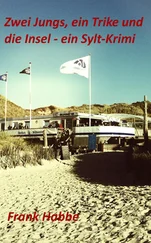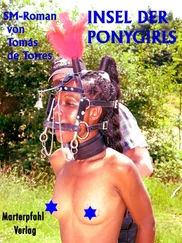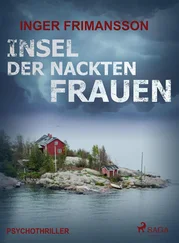Then the silence of Insel took on voice once more — A voice which as if returning from diffusion among the mists — might be coming from “anywhere,” resumed his ever recurrent cries of horror on behalf of women who could no longer love him.
“For God’s sake,” I implored, for Insel returned to his “normal” state, I followed suit— “stop agonizing— Go to sleep— To negresses every white man looks — white.”
“It’s the teeth,” he groaned— “Die Mädchen—”
At least you’d have more chance with the girls if you got Bebelle to clean your suit—
“I’ll tell you what,” I said, overcome by my inherent conviction of personal blame for anyone not being able to get anything they want—. And in Insel it seemed his need was for something so sublime that over all his aspirations hovered crowns of glory— Mädchen —something entirely outside my zone of attraction, in his regret for them, took on enchanting attributes — even those in a mountain village who ate such quantities of garlic it breathed from the pores of their skin — so much so that Insel, with the heartiest will in the world, had found it impossible to “hug them close enough.”
“You’d better get into that couch and leave your suit in the hall — when I come home I’ll throw it into a bath of gasoline.”
Insel was horrified. “I don’t want anybody to see the dirt in that suit — let alone you — I’ve worn it for five years.”
“All I shall see is the gasoline go dark — it would seem just as dark if I were cleaning something that had only been worn six months.”
But Insel was actually writhing in a bitter determination to protect his own.
“Are you afraid,” I asked, in a sudden concern for his “rays,” “that it would interfere with your Strahlen? — I’m not going to wash it. You can’t short-circuit.”
On the contrary — I anticipated him distinctly renewed in an intenser radiance—
“Please,” I begged — enraptured as a nun seeking permission to lay fresh lilies before a shrine. “ Ich bitte Sie .”
He was obdurate — it would seem, in shame. It did not occur to me that in cleaning him up one would be cutting a slice from his “beggar’s capital.”
“It’s not distinguished to be ashamed—”
Insel, in a way, gave in—.
“You try it,” he warned me. “Before your eyes the suit will turn white.”
“It won’t, or if it does, I’ll turn it black again.”
“You may clean it forever,” he intoned ominously— “the while it grows whiter — and whiter.”
“Mädchen,” I reminded him for bait— “or at least,” as for an instant Insel’s ravaged features showed through his ennobling aura— “better negresses.”
Insel was pacified. But he did not go to sleep. He evaporated.
I recognized a vapor whose drifting suspension of invisible myriads he copied so passionately with the overfine point of his pencil.
When it cleared off it had left him again an effigy straightened as the level of water.
The world of the Lutetia had materialized. An infiltration of half-light softly bursting the dark, a thin cascade, the ferns dripping into a green gloom. Here, where dawn and noon and midnight were all so dim and Insel lay sensitive to clarity as a creature of the deep sea; the closely shuttered studio with its row of glass doors was a real replica of the irreal “aquarium.”
Because I found the place somewhat chilly when sunless — I had thrown a great white blanket over my thin dress. This was due to no obsession for Insel’s white miracles. Simply, everything being put away in naphthalene, this had returned from the cleaners and the femme de ménage had not yet locked it up.
Fairly inflexible — it curved around me loosely, encaving me — its stiff corner trailing off like a sail.
I sat on the edge of the couch at the feet of that rigid flotsam — in a huge white shell.
Again I received a strictly lateral invitation to wholly exist in a region imposing a supine inhabitance. A region whose architecture, being parallel to Paradise, is only visible to a horizontal gaze. Should one stand up to it, it must disappear.
Somehow, unable to dissolve into mist, and thus too dense to enter a mirage, the nearest I could conform to the arid aquatic was in becoming crustacean.
Being an outsider did not interfere with my participation in the ebullient calm behind Insel’s eyelids, where cerebral rays of imprecision, lengthening across an area of perfectibility, were intercepted by resonant images audible to the eye, visible to the ear; where even ultimate distance was brought within reach, tangible as a caress.
As all this “lasted forever” it seemed incompatible that Insel should slump back into a larva. Yet there he was — extinguished again in unregenerative sleep.
I turned to go. A scatter of objects on the table attracted my attention. Among some weary sous and tiny strangulated worms — broken shoe laces — lay evidently the bone of some prehistoric fish. A white comb shrill with the accumulated phosphorus of the ages. Insel had emptied out his pockets.
I went about my cleaning. Ordering several bidons of gasoline, I poured them into an enamel tub, and suspending the suit by a wooden pincers, I dipped it in.
The sun was shining, the kitchen blazing white. Before the open windows that which seemed most substantial about Insel, like a corpse let down from a gallows, fell to its knees in the volatile fluid.
Then the ghastly thing began to turn pale. I set upon it in opposition and that white contorted outgrowth of a brain almost tangled in the whisk-brush—.
Had he really intended as much in his challenge — or did this Polar region of a mania— these maps of Himalayan anthills with their scabs of pure vegetation embossed upon the backdrop of his clothes, depend for their pictorial clarity on some accord between his cerebral vibrations and mine?
Being tired and bored, I went in to see if in exchange for some more food, I could make terms with Insel.
He appeared uneasy. Rolling his eyes like runaway wheels spoked with interrogations. His expression was such as I had never seen. Terror solidified.
“I am a prisoner here!”
It did not recur to me that his classic complaint is an echo in the corridors of asylums.
Tearing my visionary trappings of meat and such from me with his flippant accusation, Insel did not at all want to know, “When shall I see you again?”— He had never seen me before.
My everyday self shuddered— “Blackmail! Almost as awkward as dead tramps.” I reflected, but I had become so nicely attuned to Insel’s moods that my parasitic clairvoyance, of its very nature, being constrained to see eye to eye with him, immediately veered to his viewpoint, I concluded I must in a temporary aberration have kidnapped this gaunt guest whose snarl was unsociable.
“Beefsteak,” I quavered, as if enticing a surly hound.
Insel, completely jammed between infinite walls, was not having any steak.
I must dislodge his attention.
Seemingly at hazard my dilemma linked up with one of the kind of infantile anecdotes Insel always greeted with glee.
“Have you heard about the Hungarian immigrant lost in London?” I inquired as engagingly as I could. “He wanted to find his consulate and could not understand why the policeman only shrugged his shoulders when he explained he was ‘Hungry.’ ”
Strange how unerringly the unconscious picks its way. I had “found” Insel for himself again. To the Titan of Hunger — the policeman’s shoulders heaved in the shrug of all humanity ignoring Insel. This recognition shook him with the most sophisticated laughter I have ever heard in my life.
Читать дальше












